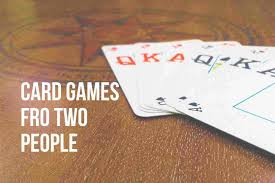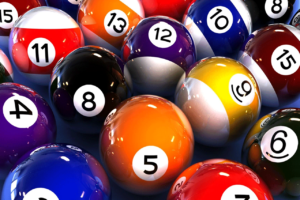Poker Games – Game Choice

An important but tough thing for all advanced players is to determine the poker game most suited their skills and why? For some players it may be obvious. However, it’s more often the case that it’s difficult to decide.
Let’s say a variety of games have been rather profitable for you; that you like different games for different reasons; and, that sometimes you have more success with a particular game than others. There’s nothing wrong with any of that, but it’s still a good idea to narrow it down to your one “most suitable” game. In the long run, you’ll benefit. Each game requires a variety of diverse skills and includes different betting structures. As we all know, winning at poker means being more skillful in several areas than your opponents. The important thing though is to understand WHY you are more successful at one certain game (or less successful) in order to maximize your advantage over your opposition.
Obviously, we can’t tell YOU which game you’re most skilled at. Sorry. But, what we can do is present some trends that we’ve witnessed and, if you can take an objective look at yourself and your game, there’s a good possibility you’ll be able to figure out which game most effectively suits your style. Nonetheless, before we begin we must remind you that we’re employing a general definition of a “winning poker player.”
A winning poker player has mastered the main skills of poker (math, discipline, psychology, risk mgmt.) and exhibits an advantage w/ technical or personal aspects of the game. ‘Technical aspects’ refers to the necessity of poker math, such as mastering odds and playing tight. ‘Personal aspects’ concerns the non-technical concepts like bluffing and diversifying your style of play. Keeping these things in mind, below we’ve provided a brief overview of what we believe certain poker games reward the most:
Longhand limit Hold’em
Limit Hold’em benefits those players with technical skills – especially patience and a good knowledge of hand value. Because many hands go to a showdown, being able to read your opponent is only helpful to a degree since it’s harder to bluff. Also, pot odds will often make a river-fold highly risky.
Shorthand limit Hold’em
Shorthand necessitates a mix of personal and technical skills. Personal skills are crucial in scrutinizing a shorthanded game. You need to understand your opponents and determine which type of style to play. Frequently, a very aggressive form is very appropriate. But, in a loose game, you should revert to basic strategy. So, once you’ve analyzed the game using personal skills, technical skills will be rewarded because one type of “technique” should be used to beat the game.
No-limit Hold’em
No limit Hold’em also requires both technical proficiency and personal skills. Technical skills will allow you to know how much you should be betting and the amount you can stand to call. People skills will help you in a hand (by putting an opponent on his cards) and will basically establish your overall strategy. This game essentially comes down to how well people make use of aggressive betting. If people are timid, you should catch a lot of pots, but fold if your bluffing encounters firm resistance. If people are playing loose, be patient and trap them.
So…which one’s ‘mine’?
As we’ve illustrated, poker is depends on a mixture of technical and personal proficiency. If you’re skillful at remaining patient, playing solid hands and playing pot odds, stick to limit Hold’em. If your ‘thing’ is knowing how to ‘read’ opponents, you should opt for a shorthand or no-limit game. Always keep re-evaluating your play as you get improve; that’s probably the best way to stay on top of which game most suits your abilities.







